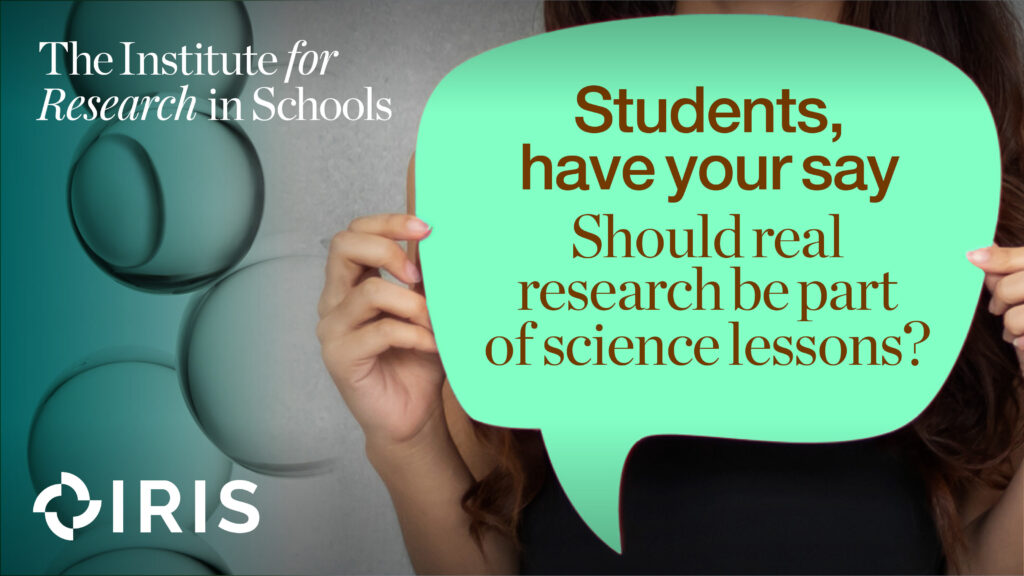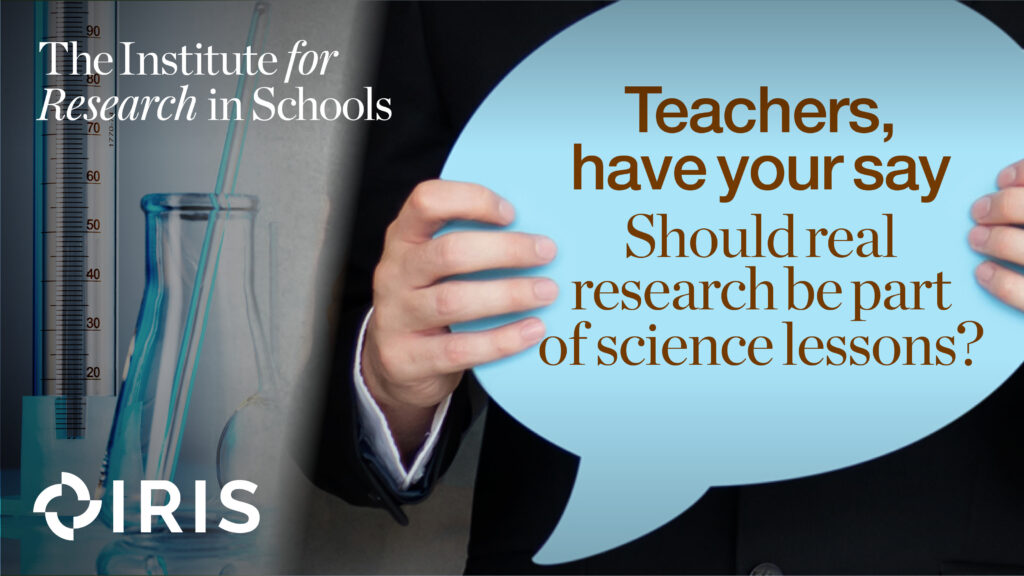
Teachers, students and parents are invited to share their views on how the STEM curriculum in schools can be improved.
The Department for Education has launched a review of the existing national curriculum and assessment system, and wants to hear from students, teachers, parents and other stakeholders to get their views. The purpose of the Curriculum and Assessment Review is to determine whether the current curriculum – the subjects taught in schools and colleges, what students learn, and how they are assessed – meets the needs of young people and prepares them to be successful in the future.
At IRIS, our mission is to change the culture of UK education so that every young person can take part in authentic research and innovation while at school. This review represents a once-in-a-lifetime chance to make meaningful and positive changes to the whole curriculum, including STEM subjects (biology, chemistry, physics, maths, applied sciences, computer science, design technology and engineering). Having the views of teachers, students and parents form part of the body of evidence that is submitted will help convince those undertaking the review that real research can help young people develop a lifelong passion for STEM. That’s why we are encouraging you to get involved.
 Current and former students are invited to contribute to the review
Current and former students are invited to contribute to the reviewWhat do you need to do?
To submit your views, you are required to fill in an online form. It’s important to be aware that the form asks over 50 questions, but you don’t need to answer them all. You will need to set aside some time to work through the form, but you can choose which questions you answer and how much you say.
If you have taken part in an IRIS project and felt that it was beneficial, you might want to make a submission to the review which explains how the project helped you enjoy STEM subjects and whether it changed your views about STEM or enabled you to develop other key skills like teamwork and problem solving. For teachers and parents/carers, you can also give your own views about the advantages you have seen for young people participating in a project.
 Teachers’ views are extremely important
Teachers’ views are extremely importantWhich questions should you answer?
You can choose whether you answer some or all of the questions; they ask about all key stages and subjects, so we would recommend answering just a few, which should take you around 15 minutes.
We’ve chosen a few questions from the review that you could answer, focusing on your unique insights as student researchers or teachers who have led research projects. Here’s what each question is about, along with some ideas to guide your responses:
Question 10 asks ‘What’s working well in helping you or your students progress?’
- You could talk about anything in STEM subjects that feels engaging and meaningful, especially when there’s been the chance to tackle real research. Think about the times science was used to investigate real-world questions or when IRIS projects made learning feel practical and exciting.
Question 11 asks ‘What could be improved?’
- This is a chance to explain how doing authentic research helps apply and expand learning beyond traditional lessons. For example, how does solving real problems or applying knowledge deepen interest in science? If working with IRIS makes you feel prepared for the world of STEM, this is a great place to share that!
Question 22 asks about ‘missing parts of the curriculum’
- Has there ever been a moment when you wished science, maths or computing lessons covered something more relevant or hands-on? Opportunities like IRIS research projects offer a more complete view of what STEM is really about – providing opportunities to work with real scientists and solve problems in your community.
Question 23 asks about ‘making the curriculum more diverse and representative of society’
- You might want to reflect on how IRIS has shown the wider possibilities in STEM. Did working on a real research project shine a light on potential STEM careers or illuminate the impact of science in different areas of society? Did you see people like you working in STEM?
Questions 26 (for Years 7-11) and 27 (for post-16 students) ask about ‘pathways for your future and preparing you for it’
- You could explain how an IRIS project prepared you for future studies in science. If you or your students are considering a STEM degree, apprenticeship or career, share how doing research with IRIS helped shape that goal, and boosted confidence in STEM skills!
Perhaps you don’t have time to fill in the online survey, but would like IRIS to submit some of your views on your behalf. You can email us on info@researchinschools.org with any details you want to share about how doing an IRIS project helped you, and why you think that real research should be part of the STEM curriculum in the future.
Ready to share your views?
Visit the government’s Call for Evidence webpage and fill in the form. You’ll need to scroll through a lot of information, but your views are extremely important and can make a real contribution to the future of the science curriculum. You can also download an Easy Read version of the form and fill that in if you would prefer.
 Parents are also invited to share their views
Parents are also invited to share their views